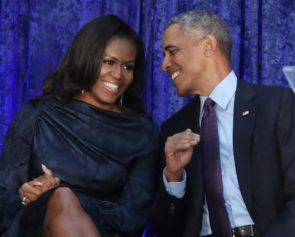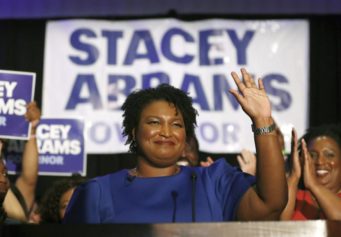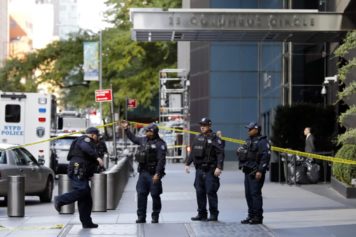It took a terse phone call from President Barack Obama late Wednesday night to finally spur the Egyptian government into trying to quell growing anti-American sentiment in its country by decisively condemning this week’s attack on the U.S. Embassy in Cairo.
Swept into power following the popular uprising that unseated Hosni Mubarak, the Muslim Brotherhood had been hedging in its public response, hoping to straddle the fence between the rising domestic unrest among the angry masses and the country’s own challenging financial realities.
But Egyptian leaders tacitly acknowledged their error in trying appease anti-American domestic opinion without first offering a robust condemnation of the violence.
The outrage, which stems from an American-made film that ridicules the Prophet Muhammad, has placed Egyptian President Mohamed Morsi and the Muslim Brotherhood in a squeeze between the need to stand with one of its biggest financial backers in Washington against the attackers and the demands of many Egyptians to defy Washington and defend Islam.
Obama, however, warned Morsi during a late-night 20-minute phone call of the implications in relations between the two nations if Egypt didn’t do more to protect American citizens and stand more firmly against the anti-American attacks.
For Egypt’s new president, the dilemma quickly became an early test of the Brotherhood’s ability to balance domestic political pressures, international commitments and its conservative religious tenets now that it is also effectively governing a new democracy.
“We are taking the heat from both sides,” Gehad el-Haddad, a spokesman for the Brotherhood, acknowledged Thursday as the group responded belatedly with a televised presidential address, a letter to the editor in The New York Times by its top strategist, and a series of sympathetic online messages aimed at pacifying irate American officials.
Morsi spoke on state TV for more than seven minutes on Thursday, his most direct public move to contain protests since an angry crowd assaulted the embassy Tuesday night, scaling its walls and tearing down the American flag.
“It is required by our religion to protect our guests and their homes and places of work,” he said. “So I call on all to consider this, consider the law, and not attack embassies, consulates, diplomatic missions or Egyptian property that is private or public.”
Morsi denounced the killing of the American ambassador in Libya, who died in an attack Tuesday night on the U.S. Consulate in the eastern Libyan city of Benghazi along with three other Americans.
Better late than never, some analysts said.
“They realized a little after the fact the degree of fallout in the U.S. and that is why you are seeing all these conciliatory statements from Brotherhood leaders today,” said Shadi Hamid, director of research at the Brookings Doha Center, who follows the group closely. “Morsi is doing a difficult dance.”
Morsi’s stunning inaction until that point was a stark contrast to the help, contrition and condemnation coming from the new government of Libya.
Egypt is a crucial lynchpin to American security interests in the volatile, given its peace treaty with Israel.
Obama had already signaled his displeasure earlier, saying in an interview on Telemundo that Egypt was not necessarily an “ally,” although White House officials later played down the remark.


